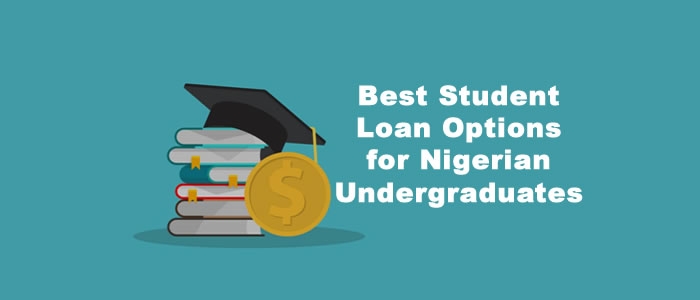
Education remains one of the most powerful tools for personal and national development. However, in Nigeria, many students face significant financial barriers that make it difficult to pursue higher education. Rising tuition fees, accommodation costs, and study materials have left countless undergraduates struggling to stay in school.
In response to these challenges, student loans have become an essential solution to bridge the gap between financial need and academic ambition. Over the years, both the Nigerian government and private institutions have introduced student loan programs designed to make higher education more accessible. This article explores the best student loan options available to Nigerian undergraduates, how they work, their eligibility requirements, and how to apply.
1. The Nigerian Education Loan Fund (NELF)
The Nigerian Education Loan Fund (NELF), established under the Students Loan (Access to Higher Education) Act, 2023, is one of the most significant government-backed student loan schemes in the country. It was introduced by the Federal Government to ensure that no student is denied education due to financial limitations.
Key Features Nigerian Education Loan Fund (NELF):
- Interest-Free: The loan is completely interest-free, ensuring students repay only what they borrowed.
- Eligibility: Nigerian students enrolled in public universities, polytechnics, and colleges of education can apply.
- Repayment Plan: Repayment begins two years after completing the National Youth Service Corps (NYSC).
Application Process: Students can apply online through the official NELF Portal by providing proof of admission, school fees schedule, and guarantor information. This initiative marks a major milestone in Nigeria’s commitment to inclusive education, especially for students from low-income families.
2. Access Bank Student Loan
Access Bank offers an education loan product designed to help parents and students finance school-related expenses both locally and abroad.
Key Features Access Bank Student Loan:
- Loan Amount: Up to ?5 million, depending on the applicant’s credit profile and institution.
- Tenor: Up to 12 months, renewable based on academic duration.
- Collateral: May require guarantor or salary domiciliation for employed applicants.
- Purpose: Covers tuition, accommodation, and study materials.
This loan is particularly popular among students in private universities who need short-term financial support for tuition payments.
3. First Bank Eduloan
First Bank of Nigeria has a dedicated Eduloan product that supports education funding for both students and guardians.
Key Features First Bank Eduloan:
- Loan Range: ?50,000 to ?10 million.
- Tenor: Up to 12 months, depending on repayment capacity.
- Eligibility: Open to employees, guardians, and students with a reliable repayment plan.
- Interest Rate: Competitive and subject to bank approval.
The First Bank Eduloan stands out for its flexibility and quick processing time, making it ideal for students facing urgent tuition deadlines.
4. Federal Scholarship Board (FSB) Loans and Grants
While the Federal Scholarship Board primarily offers scholarships, it also manages educational grants and soft loan programs under various bilateral agreements.
Key Features Federal Scholarship Board (FSB) Loans and Grants:
- Support Type: Partial loans and grants for tuition and living expenses.
- Target: Undergraduate and postgraduate students in Nigerian and foreign institutions.
- Repayment: Minimal interest with lenient terms for beneficiaries.
- Application: Students can apply through the FSB’s official website when calls for applications are open.
This scheme helps reduce the burden of full tuition payments and complements other student loan initiatives.
5. LAPO Microfinance Bank Education Loan
LAPO Microfinance Bank, known for empowering low-income families, offers a student education loan to support parents and guardians with school-related expenses.
Key Features LAPO Microfinance Bank Education Loan:
- Loan Amount: ?20,000 to ?500,000.
- Tenor: Up to 12 months.
- Eligibility: Parents/guardians of students in recognized institutions.
- Repayment: Flexible weekly or monthly plans.
Although this loan is indirect (parents apply on behalf of students), it plays a critical role in sustaining education among low-income households.
6. GTBank QuickCredit for Education
Guaranty Trust Bank (GTBank) introduced QuickCredit for Education, targeting schools and parents seeking short-term financing.
Key Features GTBank QuickCredit for Education:
- Loan Range: Up to ?5 million.
- Tenor: 6 to 12 months.
- Interest Rate: Competitive, with no hidden charges.
- Purpose: Supports payment of tuition and school-related expenses.
This loan is disbursed within 24 hours and is a good fit for students who need quick access to funds for urgent payments.
7. Sterling Bank Eduloan
Sterling Bank also offers an Eduloan initiative that partners directly with educational institutions to fund tuition.
Key Features Sterling Bank Eduloan:
- Loan Amount: Based on the institution’s tuition fee.
- Tenor: 3 to 12 months.
- Eligibility: Students enrolled in partner schools.
- Benefit: Payment is made directly to the school, ensuring proper fund use.
The Eduloan simplifies the loan process by removing the need for collateral and ensuring transparency between the bank and the institution.
8. CBN Development Finance Initiatives
The Central Bank of Nigeria (CBN), through programs like the Tertiary Institutions Entrepreneurship Scheme (TIES), supports students and recent graduates with loans to fund academic or business-related needs.
Key Features CBN Development Finance Initiatives:
- Target: Undergraduates and graduates of Nigerian universities and polytechnics
- Loan Amount: Up to ?5 million for individuals; ?25 million for groups.
- Interest: 5% per annum (increased to 9% after 2 years).
- Purpose: Supports both educational needs and student-led business startups.
This initiative encourages financial independence and entrepreneurship among students.
9. Private Fintech Loan Platforms
Several Nigerian fintech companies like FairMoney, Carbon, and Branch now offer flexible student-friendly loans.
Key Features 9. Private Fintech Loan Platforms:
- Loan Range: ?10,000 to ?500,000.
- Tenor: 1 to 6 months.
- Disbursement: Instant, within minutes.
- Requirements: BVN, valid ID, and proof of income or guarantor.
These platforms use digital scoring systems to approve loans quickly, making them an appealing option for tech-savvy students.
10. State Government Education Loans
Some states, such as Lagos, Oyo, and Kaduna, have established education support funds for indigenes studying in tertiary institutions.
Key Features State Government Education Loans:
- Support Type: Grants or low-interest loans.
- Eligibility: State indigenes enrolled in recognized institutions
- Application: Through state scholarship boards.
These initiatives demonstrate localized efforts to ensure equitable access to education.
Conclusion: Access to education should never depend solely on financial capability. With the emergence of several student loan options in Nigeria, more undergraduates can now pursue their dreams without dropping out due to lack of funds. From the interest-free NELF scheme to bank-backed loans and fintech innovations, students have multiple paths to explore. However, it is crucial to read the terms carefully, understand repayment schedules, and borrow responsibly. In the long run, these student loan programs are not just financial aids—they are investments in Nigeria’s human capital and the nation’s future.

 .jpg)





 Workplace Soft Skills That Make You Stand Out in the Business World
Workplace Soft Skills That Make You Stand Out in the Business World  Essential Certifications And Education For Advancing In Business
Essential Certifications And Education For Advancing In Business